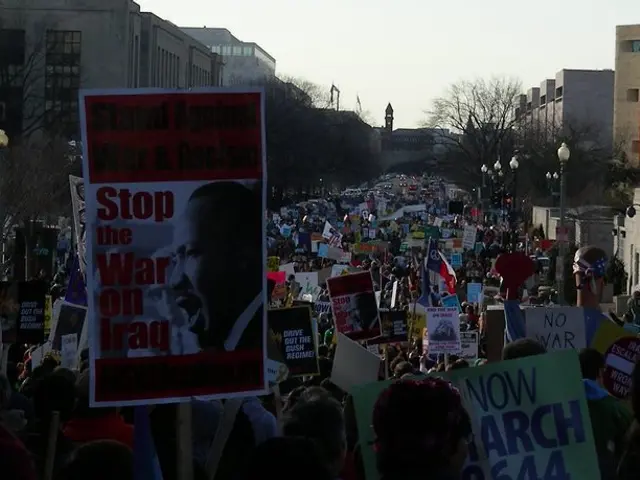Greece Balances Middle East Stance, Refrains from Recognizing Palestine
Greece has maintained a delicate balance in its Middle East stance, refraining from recognizing Palestine as a state at present. This decision, according to Greek officials, is not driven by political alignment but by strategic interests and a commitment to dialogue and stability.
Greece's foreign policy in the region is anchored in long-term strategic cooperation with Israel, rather than aligning with any specific political faction. This approach has been echoed by Prime Minister Kyriakos Mitsotakis, who has been critical of Israeli Prime Minister Benjamin Netanyahu's handling of military operations in Gaza.
Despite this, Greece maintains a strategic relationship with Israel, suspending cooperation only with Netanyahu's government, not the state itself. This nuanced position allows Greece to act as a credible interlocutor for both Palestinian and Israeli sides, as stated by Greek officials.
Greece's stance on the Israeli-Palestinian conflict is clear: it condemns violence and supports international law. It considers the expansion of Israeli settlements illegal, yet it continues to engage with Israel strategically. This balance is seen as crucial for Greece's national interests, given the political instability within the Palestinian Authority.
Greece's Middle East policy, under Prime Minister Kyriakos Mitsotakis, is marked by diplomatic support for states and strategic relations with Israel, despite political differences. By not recognizing Palestine at this moment, Greece aims to preserve its credibility as a mediator and protect its national interests in a complex regional landscape.
Read also:
- American teenagers taking up farming roles previously filled by immigrants, a concept revisited from 1965's labor market shift.
- Weekly affairs in the German Federal Parliament (Bundestag)
- Landslide claims seven lives, injures six individuals while they work to restore a water channel in the northern region of Pakistan
- Escalating conflict in Sudan has prompted the United Nations to announce a critical gender crisis, highlighting the disproportionate impact of the ongoing violence on women and girls.






